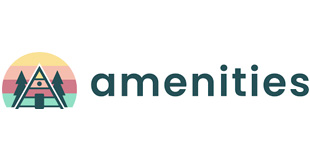The Home Smart Clinic is aimed at filling the gaps in care of traditional telehealth.
Virtual care company TytoCare has launched a remote primary care offering for health plans and providers.
The Home Smart Clinic offers TytoCare’s Food and Drug Administration-cleared handheld solution for remote physical examinations and diagnoses; Tyto Insights, which is TytoCare’s proprietary AI-powered diagnostic support for clinicians to diagnose conditions and guide patients in conducting successful physical exams; Tyto Engagement Labs, a suite of user-engagement services including, behavioral science-backed blueprints, consulting services and a full-stack marketing engine tailored to each specific program and cohort.
It also includes support for multiple provider models, from doctors-in-the-cloud to primary care physicians and the capability to tailor the program for different patient populations that are covered by private or public health insurance.
Primary care can be provided by telehealth across modalities, including acute, chronic and preventive care, according to TytoCare.
The Home Smart Clinic has been shown to reduce the total cost of care for health plans by 10%, deliver 59% more accurate diagnoses than traditional telehealth solutions and resolve 98% of visits without necessitating an in-person appointment, according to TytoCare.
WHY THIS MATTERS
The Home Smart Clinic is aimed at filling the home healthcare delivery gap of one-dimensional point solutions for virtual care that offer a chat or video call.
One-dimensional solutions are limited in their ability to support accurate remote diagnoses. Audio/visual-only solutions do not adequately address healthcare organizations’ key performance indicators. Both lead to low utilization and a lack of engagement, TytoCare said.
The home, the ideal first stop for primary care, is still ill-equipped to deliver quality care, compared with in-person visits, TytoCare said.
To measure the success of the Home Smart Clinic, TytoCare also has new Home Health Delivery Metrics that assess implementation. This includes diagnostic capabilities, including broadness and accuracy; retention of existing members/patients and acquisition of new ones; inclusion for health equity, reach and access to care; visit resolution that looks at the effectiveness of care, including no readmissions, revisits or redundant visits; and engagement, measuring behavioral change.
THE LARGER TREND
After close to three years of COVID-19, traditional telehealth faces challenges in delivering a return on investment and outcomes, according to Dedi Gilad, CEO and cofounder of TytoCare.
COVID-19 and an aging demographic also brought new interest in home care.
Both telehealth and acute care at home were among the flexibilities offered under the public health emergency, which is currently slated to end in mid-January.
Cofounded by Dedi Gilad and Ofer Tzadik in 2012, TytoCare partners with over 180 health systems, health plans and other partners in the U.S., Europe, Asia, Latin America and Israel.
ON THE RECORD
“We have always sought to provide the highest quality, forward-thinking value-based care for our patients, and today it’s possible to do so from home,” said Barry Arbuckle, president and CEO, MemorialCare. “To do so, it’s crucial to not only have remote care capabilities, but also to drive positive clinical outcomes, value for patients reflected in high engagement and utilization, cost reduction and long-lasting behavioral change that truly makes virtual care work.”
“Our mission has long been to reimagine a better, more equitable model of health through innovation and collaboration, and today, there is no doubt that that future revolves around the home,” said Dr. Alejandro Quiroga Chand, SVP, chief medical officer, Ambulatory Care and Population Health, Corewell Health West, formerly Spectrum Health.



